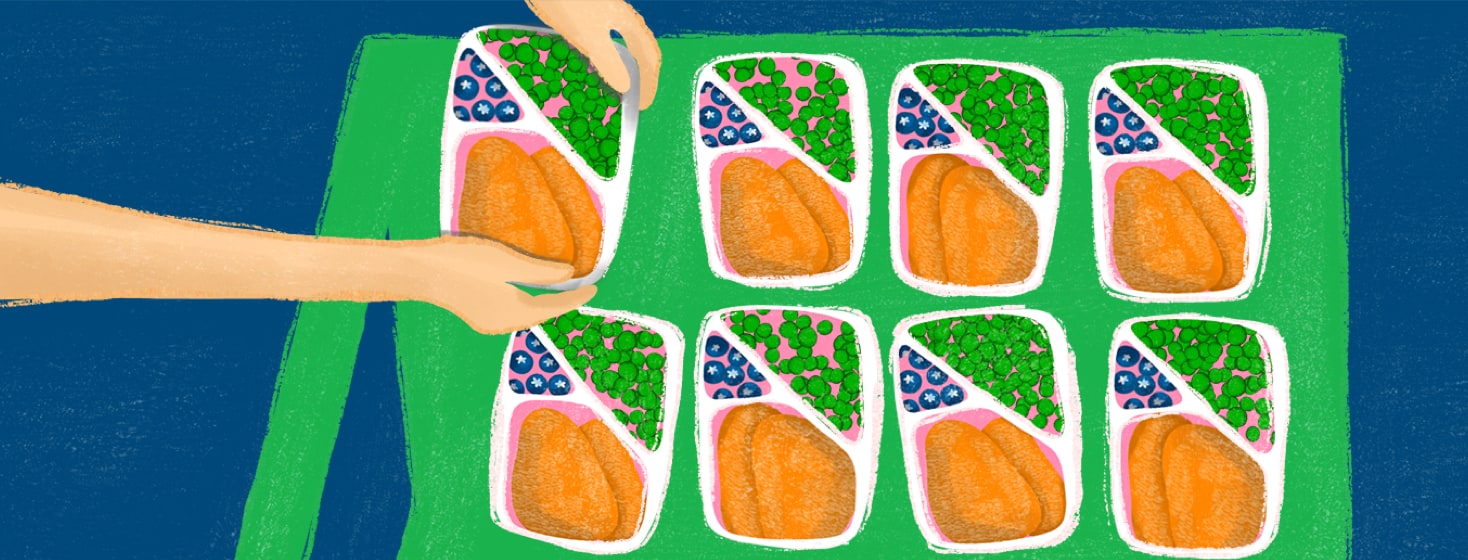Tips to Master Meal Preparation With Myasthenia Gravis
Meal preparation has been a true challenge both physically and mentally since I was diagnosed with myasthenia gravis. However, I've discovered some strategies that have converted cooking from a daunting task into a more manageable, efficient, and sometimes even meditative process. Safety is a critical concern when dealing with muscle weakness, and I've learned a few tips that have made me less hesitant. If you're navigating similar challenges, these insights might be helpful for you.
Simple recipes
I don't stick to a strict schedule for what recipes to prepare on specific days. Instead, I prefer to create dishes using seasonal ingredients that can be integrated into multiple meals. I look for recipes that require fewer ingredients, which means less time spent on preparation. Having versatile ingredients is especially helpful on days when my appetite is reduced due to medications, making me more selective about what I feel like eating.
Time and energy saving meals
One-pot, one-pan meals, and slow-cooker recipes save time and energy. I love soups, and I find it much easier on my body and stress levels to chop all the ingredients, roast them on one pan, and then blend everything into a soup. This is much simpler than managing a stovetop full of food and juggling multiple components at once.
Batch cooking is beneficial for me because it helps me properly nourish myself. My energy levels fluctuate daily, and I often feel achy and fatigued. To manage this with cooking, I prepare larger quantities of food when I have the energy or am already cooking a meal. If I cook large portions of meals, I need someone to assist me with lifting heavy pots and pans. I then freeze portions for later use to have ready-made meals available when I might not feel strong enough to cook or when I have other tasks requiring my energy.
Limit heavy lifting and pouring
Heavy lifting, such as carrying pots full of water or soup, is my biggest challenge when it comes to cooking. This challenge has led to some frustrating moments, especially when I accidentally spill soup or drop a pot while trying to drain water, which ultimately ruins a meal I worked hard to prepare. To address this issue, I have gradually started investing in lighter pots and pans. I usually ask a family member for help when I need to lift something heavy. However, when no one can assist, I portion the items into smaller, more manageable pots and pans.
Planning meals and prepping ingredients in advance
I like to create a weekly meal plan that outlines what I intend to eat. This helps reduce my stress and enables me to shop more efficiently, rather than making multiple food runs during the week. Additionally, it allows me to prep my ingredients in advance or throughout the day when I have more energy to break up the strain on my body. I then store them in the fridge until needed.
Incorporate convenience foods
To minimize preparation time and save energy without feeling overwhelmed, I often use convenience foods such as canned or frozen vegetables as components in my meals. If chopping fresh vegetables feels like too much effort, I will consider using only frozen vegetables or a vegetable chopping device.
Sharp knives with large grip
My biggest concern when cooking with MG is the frequent cuts and close calls caused by using small, unsharp knives. After some time, I invested in a rocking knife with a large grip and a protective cooking glove. This has made ingredient preparation much more manageable since these knives require less force.
Sit while preparing ingredients and cooking
I sit at the kitchen table to chop all my ingredients before cooking to help me avoid feeling rushed. When I'm at the stove, I use a high-top chair so my legs don't get as weak, which often negatively influences my mood. Cooking can make me feel on edge, and I strive to stay focused to avoid injuries.
Use timers, stay organized, and clean while cooking
It has been a work in progress to improve my ability to finish all the different meal components around the same time. I often struggle with brain fog, which makes me forget to take items out of the oven or off the stove, even when I hear a timer. My system, which has led to some improvement, is to create a list of the steps involved in my meal preparation and cross off tasks as they are completed. This helps me avoid leaving anything burning or forgotten. Additionally, keeping the kitchen organized and cleaning as I cook helps declutter not only the counters but also my mind and thoughts while I prepare meals.
Heat resistant gloves
Because my clumsiness in the kitchen has occasionally caused me to burn myself, my mom bought me some heat-resistant gloves. I use these gloves when taking items out of or putting items into the oven, as well as when draining hot water, steaming water, or pouring anything hot.
Create a manageable and adjustable cooking routine with MG
Cooking with myasthenia gravis can be challenging, but it doesn't have to be. I simplify meal preparation by focusing on easy, adjustable recipes, cooking in batches, and planning ahead. I choose convenient ingredients and invest in helpful tools to create a safer, more efficient cooking space.
Organizing the kitchen and using timers and step-by-step lists helps me manage cooking despite fluctuating energy levels and brain fog. By following these tips, anyone facing similar challenges can make meal preparation an approachable and rewarding experience.

Join the conversation